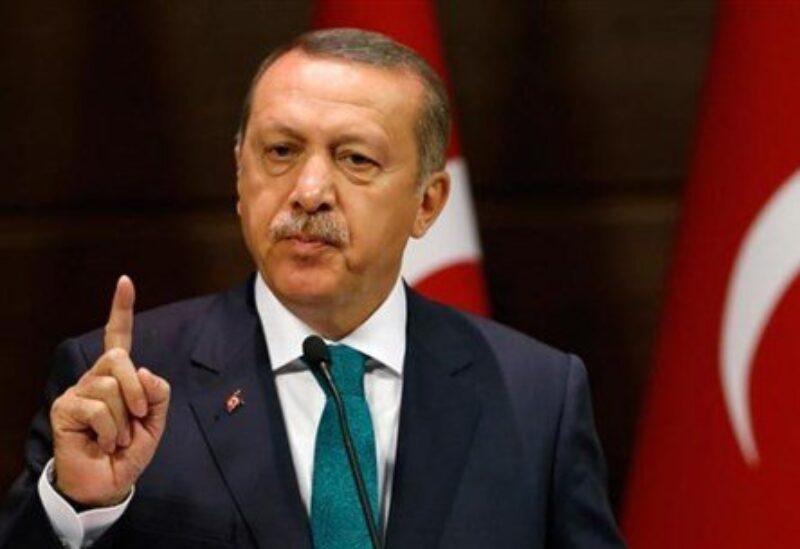
Turkish President Tayyip Erdogan will travel to Saudi Arabia on Thursday
On Monday, Turkey and its Western allies were able to avoid a full-fledged diplomatic crisis after foreign embassies stated that they adhere to diplomatic non-interference norms, averting the threat of expulsion of ten ambassadors.
President Tayyip Erdogan, who labeled the envoys “persona non grata” over the weekend for seeking the release of a jailed philanthropist, said they had taken a step back and would be more cautious at a news conference.
“Our purpose is never to create crises; it is to safeguard our country’s rights, laws, honor, and sovereignty,” Erdogan said after chairing a Cabinet meeting in a televised address.
“A step back from this slander against our country and nation was taken today with a new statement issued by the same embassies. These ambassadors, I believe, will be more circumspect in their pronouncements about Turkey’s sovereign rights.”
Despite his combative tone, Erdogan’s remarks on Monday were a significant shift in tone, aimed at reducing tensions following threats he made over the weekend.
The ambassadors, including the U.S. envoy, had called on authorities last week to free Osman Kavala, a philanthropist detained for four years on charges of financing protests and involvement in an attempted coup. He denies the charges.
The public call infuriated Ankara, which said the diplomats – also from Germany, France, Canada, Netherlands, New Zealand, Norway, Sweden, Denmark and Finland – were interfering in Turkey’s internal affairs.
As Erdogan convened his ministers on Monday afternoon for a session which could have confirmed the expulsions and triggered the deepest rift with the West in his 19 years in power, several embassies put out a brief statement.
“The United States notes that it maintains compliance with Article 41 of the Vienna Convention on Diplomatic Relations,” the U.S. Embassy said on Twitter. The other embassies published similar messages or re-tweeted the U.S. message.
A Turkish version of the U.S. statement said the embassy “confirms” compliance with the convention, which some observers said could be read to suggest that the embassies were pledging future compliance.
“Strategic ambiguity at work … allows Erdogan’s spin doctors to claim that the West has surrendered, while the English version gives the impression back home that the West has stood its ground,” said former opposition parliamentarian Aykan Erdemir on Twitter.
The U.S. State Department later said Monday’s statement on Twitter meant “to underscore that the statement that we put out on October 18 was consistent with Article 41”, adding it would pursue dialogue with Turkey.
“We are steadfast in our commitment to promoting the rule of law, to promoting respect for human rights globally,” said State Department spokesman Ned Price.
“The Biden administration seeks cooperation with Turkey on common priorities, and as with any NATO ally, we will continue to engage in dialogue to address any disagreements.”
A diplomatic source said talks on a plan to reduce tensions were led by the U.S. mission and Turkish officials, including presidential adviser and spokesman Ibrahim Kalin and Foreign Minister Mevlut Cavusoglu.
The envoys aimed to highlight Vienna Convention principles while seeking guidance from Turkish officials on what move might be “palatable” for Erdogan, the source said, adding they were cautiously hopeful that the Twitter statements would help ease tensions even if the Turkish government gave no assurances.
CONCERNED INVESTORS
In response to Monday’s developments, the Turkish lira rallied after earlier hitting an all-time low of 9.85 to the U.S. dollar, and was at 9.5930 at 2053 GMT. It has lost almost a quarter of its value this year.
Kavala, a businessman and contributor to civil society groups, is charged with financing nationwide protests in 2013 and involvement in a failed coup in 2016. He has been held in detention while his trial continues.
Rights groups say his case is emblematic of a crackdown on dissent under Erdogan. Kavala said on Friday he would no longer attend his trial, as a fair hearing was impossible after recent comments by the president.
The diplomatic tension has added to investor concerns about Turkey’s economy after the central bank, under pressure from Erdogan to support growth, unexpectedly slashed interest rates by 200 points last week despite inflation rising to nearly 20%.
The 10 envoys were summoned by the foreign ministry last week after calling for a just and speedy resolution to Kavala’s case, and for his “urgent release”.
Parliament speaker Mustafa Sentop said earlier on Monday that Turkey’s constitution banned discussion of active court cases, including by Turkish politicians in parliament, and that the envoys’ statement marked a “clear and disrespectful” interference.
The European Court of Human Rights called for Kavala’s release two years ago, saying there was no reasonable suspicion he had committed an offence and finding his detention had been intended to silence him.